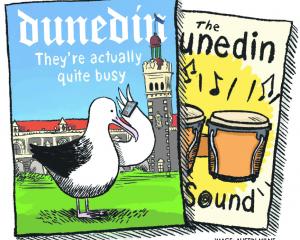
The Commerce Commission brought 10 charges under the Fair Trading Act against the local division of the consumer goods business, over packaging that claimed products targeted a specific type of pain between 2011 and 2015 when that wasn't the case, the regulator said in a statement. Reckitt Benckiser had indicated its intention to plead guilty and had cooperated with the commission's investigation.
"The packaging of these products and the website gave consumers the impression that the products were targeted to relieve a specific kind of pain," commission chairman Mark Berry said. "In fact, the products all contained the same ingredients and worked identically, to alleviate inflammation and pain generally, but were not specifically formulated to treat a particular area of pain. Consumers paid significantly more for these products compared to other ibuprofen products that would have had a similar effect."
Reckitt Benckiser had already agreed to enforceable undertakings to change the packaging of the specific pain range and had taken down the offending website pages prior to that.
The regulator's probe began after the Australian Competition and Consumer Commission won a case against Reckitt Benckiser for misleading consumers with the painkiller's packaging. The ACCC appealed the original A$1.7 million fine imposed as being too small, and it was later increased to A$6 million, although Reckitt Benckiser is seeking to overturn that decision.
The commission said sentencing Judge June Jelas described the company's behaviour as "highly misleading" and while she accepted Reckitt Benckiser expressed its remorse for its conduct, that was only after the investigation was opened.
In a separate statement, Reckitt Benckiser said it took the "judgment very seriously and apologises for any unintentional confusion related to the specific-pain range packaging where NZ consumers could have been misled, this was never our intention."
Reckitt Benckiser reported sales of $127.8 million in calendar 2015, its most recent accounts, though the slashing of goodwill pushed earnings to a loss of $48.8 million. The consumer goods firm cut $51.8 million from goodwill - which represents the premium paid over the fair value of identifiable assets in an acquisition - valuing the intangible asset at $79.4 million as at Dec. 31, 2015.












